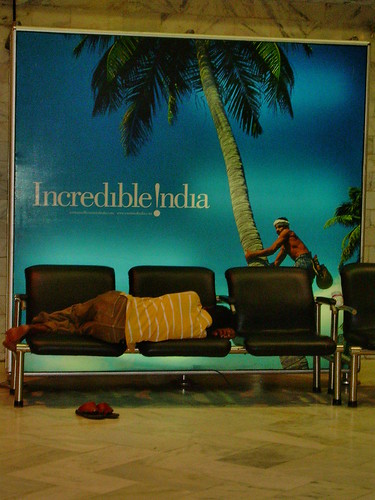The Best of Times
It was built with the idea that good time would last forever.
 But like the Paradise Theatre, New Delhi's Chanakya Cinema was closed down this week.
But like the Paradise Theatre, New Delhi's Chanakya Cinema was closed down this week.
It was in the 70's that I saw my first movie at Chanakya: Lost in the Desert--the story of a small boy surviving in the desert after a plane crash. It's not a movie often remembered today, but I can still recall the vivid grains of sand projected on the finest screens of its time in New Delhi.
Chanakya was an experience unlike any other. In its early days, the movies were mostly Hollywood, though a few years late; and the crowd, expatriates and the rich that lived around the area. The quietness of the surroundings, the bold architectural style of the theatre building and when you entered inside, the plush carpet--everything in Chanakya had character. For India passing through difficult times, it was a piece of the future that we hoped to create.
As a schoolboy I heard of the technical challenges in designing the "structure and the acoustics" (yes, the very words of the storyteller), with assistance from the nearby IIT. Don't know how much of that story was true, but it made us want to grow up and do big things.
India has since arrived. And so have the new generation of malls and multiplexes around Delhi, one of them being planned for the hallowed ground where Chanakya stands today.
The city of Delhi has been rebuilt at least 6 times in last 2000 years. So one structure being razed to make way for another, is perhaps par for this course.
Nevertheless, the memory of Chanakya shall remain in the hearts of men and women of Delhi, who can associate events in their lives with movie posters that adorned its walls at the same time.















